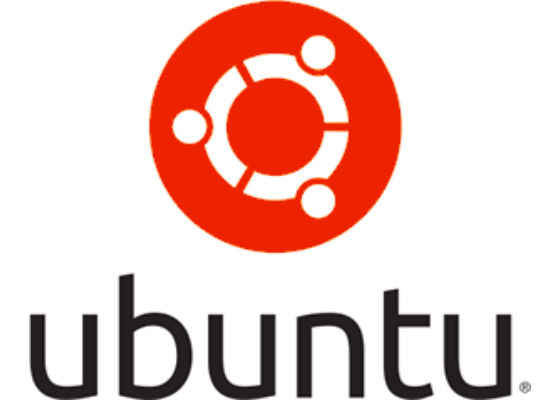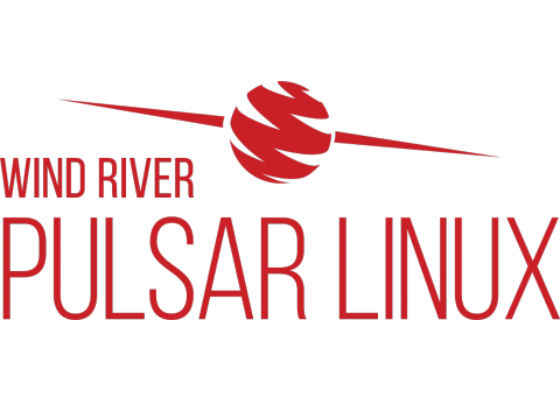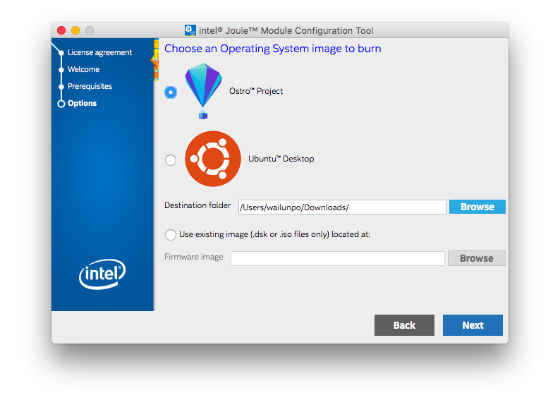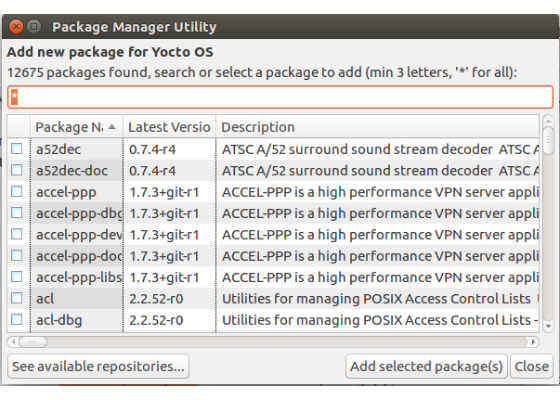Announcing Ubuntu and Wind River Pulsar support with Intel IoT Developer Kit 5.0
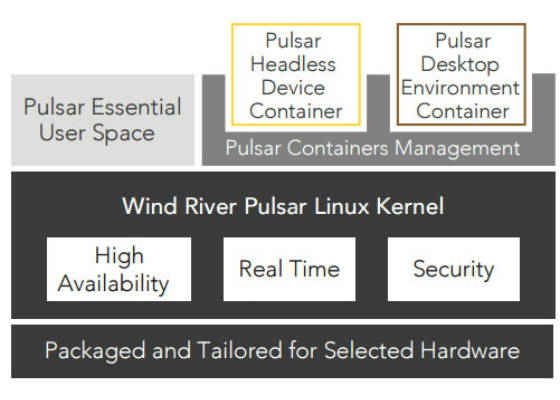
We are very excited to announce the release of Intel® IoT Developer Kit 5.0! This release brings Ubuntu* support for the Intel® Joule™ development platform and Intel® IoT Gateway, providing developers with additional OS options for their IoT solutions. We've expanded our middleware libraries to support microcontrollers, wireless connectivity, and additional industrial sensors. Our tools and IDEs have also been updated with new features that enhances the developer experience.
Key Features:
- Ubuntu* development support for the Intel® Joule™ development platform and Intel® IoT Gateway
- C/C++ development on Ubuntu* 16.04.1 LTS with the Intel® System Studio IoT Edition
- Node.js* development on Ubuntu* 16.04.1 LTS with the Intel® XDK
- I/O and sensor middleware libraries (MRAA & UPM) available as Ubuntu* packages
- Wind River Pulsar* Linux* 7 support for MinnowBoard MAX* boards
- C/C++ development on Wind River Pulsar* Linux* 7 with the Intel® System Studio IoT Edition
- I/O and sensor middleware libraries (MRAA & UPM) available as RPM packages
- I/O middleware library for Zephyr* and Microcontrollers (ZMRAA)
- Wireless connectivity and industrial sensor support
- ZigBee*
- Z-Wave*
- LoRa*
- NFC/RFID
- Wi-Fi*
- Bluetooth* low energy
- Industrial sensors from Aeon Labs, Trane, GE, and Honeywell
- 50+ C UPM drivers for a common sensor API on both Unix* and RTOS platforms
- How-To Intel® Technology Code Samples for the Intel® IoT Gateway
- Ubuntu* support and UI/UX improvements for the Intel® Joule™ Module Configuration Tool
- Install and sync repository packages/libraries with the Intel® System Studio IoT Edition
- Web Services Explorer with the Intel® XDK
Ubuntu* development support for the Intel® Joule™ development platform and Intel® IoT Gateway
The Intel® IoT Developer Kit now supports Ubuntu* on Intel® Joule™ development platforms and Intel® IoT Gateways! You can now run Ubuntu* on these platforms and still use the same familiar Intel® IoT Developer Kit tools and libraries for prototyping and development.
Supported hardware platforms include:
- Intel® Joule™ development platform (Ubuntu* Desktop 16.04)
- Dell Wyse* 3290 gateway (Ubuntu* Desktop 16.04)
- Gigabyte* GB-BXBT-3825 gateway (Ubuntu* Desktop 16.04)
- Intel® NUC DE3815TYKHE (Ubuntu* Server 16.04)
Supported features include:
- C/C++ development support with the Intel® System Studio IoT Edition
- Node.js* development support with the Intel® XDK (for the Intel Joule development platform)
- Install additional packages on the target with apt-get, such as ROS* (Robot Operating System), or sync them remotely using the new package manager feature in the Intel® System Studio IoT Edition
- I/O middleware library support (MRAA)
- Sensor and actuator middleware library support (UPM)
- IMRAA support, allowing you to connect to sensors and actuators over Firmata using an Arduino 101* board
See the Intel® Joule™ Module User Guide and Getting Started with Intel® IoT Gateways and Intel® IoT Developer Kit for details.
Wind River Pulsar* Linux* 7 support for MinnowBoard MAX* boards
Wind River Pulsar* Linux* is a small, high-performance, secure, and manageable Linux* distribution designed to simplify and speed your embedded and Internet of Things (IoT) development projects.
This release brings Wind River Pulsar Linux support to the Intel® IoT Developer Kit. You can use the same familiar tools and libraries for prototyping and development. Supported features include:
- MRAA and UPM middleware libraries support
- Cloud connector middleware support, including support for Amazon Web Services*, Microsoft Azure*, and IBM Bluemix*
- C/C++ development support with the Intel® System Studio IoT Edition
Wind River Pulsar Linux is supported for the MinnowBoard MAX* development board. Learn more about getting started on Wind River Pulsar* Linux*.
I/O middleware library for Zephyr* and Microcontrollers (ZMRAA)
The Intel® IoT Developer Kit is introducing ZMRAA, an MRAA implementation for the Zephyr Project*. You can now use the same familiar MRAA hardware I/O abstraction APIs on Intel microcontroller platforms, such as the Arduino 101* board or the Intel® Quark™ microcontroller D2000. ZMRAA’s C API supports GPIO, I2C, AIO, PWM, and SPI. Start developing with ZMRAA today!
Wireless connectivity and industrial sensor support
The UPM library now supports a variety of radio modules and protocols, most of which are commonly used in an IoT solution. Add wireless connectivity to your sensor nodes and between gateways with wireless protocols such as:
- ZigBee*
- Z-Wave*
- LoRa*
- NFC/RFID
- Wi-Fi*
- Bluetooth* low energy
Learn more about the supported modules and APIs.
Take your IoT solution to production with UPM’s support for industrial sensors. We’ve added additional industrial-grade sensors to our list of supported modules, including a variety of Z-Wave industrial sensors from Aeon Labs, Trane, GE, and Honeywell.
Explore all the supported sensors and actuators.
50+ C UPM drivers for a common sensor API on both Unix* and RTOS platforms
We’ve ported 50+ UPM drivers to C, offering a common sensor API that simplifies IoT solution development and transitions from Unix* to Real Time Operating System (RTOS) platforms, or vice versa. Use the same tools and libraries to develop and deploy to both gateways and edge devices. Generic function tables are provided for the newly added C drivers to facilitate sensor framework development on top of the UPM sensor drivers. Learn more and check out the examples.
How-To Intel® Technology Code Samples for the Intel® IoT Gateway
Run the Access Control, Alarm Clock, Doorbell and many more How-To Intel Technology Code Samples using an Intel® IoT Gateway with the Intel® System Studio IoT Edition or Intel® XDK. These instructional code samples are end-to-end prototype solutions using the Intel® IoT Developer Kit, Intel® IoT Gateway, Intel® NUC, Intel® Joule™ compute module, Intel® Edison board, Grove* and DFRobot* sensors, cloud services, APIs, and other technologies. Find many of these samples in C++, Java*, JavaScript*, and (recently added) Python*. Learn more about the How-To Intel Technology Code Samples here: https://github.com/intel-iot-devkit/how-to-code-samples.
Ubuntu* support and UI/UX improvements for the Intel® Joule™ Module Configuration Tool
The Intel® Joule™ Module Configuration Tool has been updated to support creating Ubuntu* Desktop 16.04 bootable media for your Intel® Joule™ development platform. The UI has also been updated, along with various tweaks and bug fixes for a better user experience.
Install and sync repository packages/libraries with the Intel® System Studio IoT Edition
In addition to support for Ubuntu* 16.04.1 LTS and Wind River Pulsar* Linux*, the Intel® System Studio IoT Edition now includes a third-party package synchronization utility. Add third-party packages/libraries (e.g. ROS* (Robot Operating System) for Ubuntu*) to your project and have the IDE automatically install them to your build environment. The selected packages are synchronized when you connect to your target to ensure that they run correctly.
For details, see the Intel® System Studio IoT Edition User Guide for C/C++ and the guide on adding third party packages.
Web Services Explorer with the Intel® XDK
The Web Services Explorer allows you to make code binding to web services for your IoT apps. This feature was already available for mobile apps and is now enabled for IoT projects as well. For more information about using the Web Services Explorer, see the Intel® XDK documentation, here.
Many of the IoT "templates" have been updated to support the Intel® Joule™ development platform. New IoT sample apps have been added to the "IoT samples" section that are designed to run on the Intel Joule development board.
The IoT daemon installation and update process has also been improved. The IoT daemon can now be installed or updated on a supported IoT operating system, even if the daemon is not present on the IoT target device. The Intel® XDK IoT daemon has been updated for proper operation on Intel Joule platforms.
For more such intel IoT resources and tools from Intel, please visit the Intel® Developer Zone
Source:https://software.intel.com/en-us/intel-iot-developer-kit-50-release-announcement

